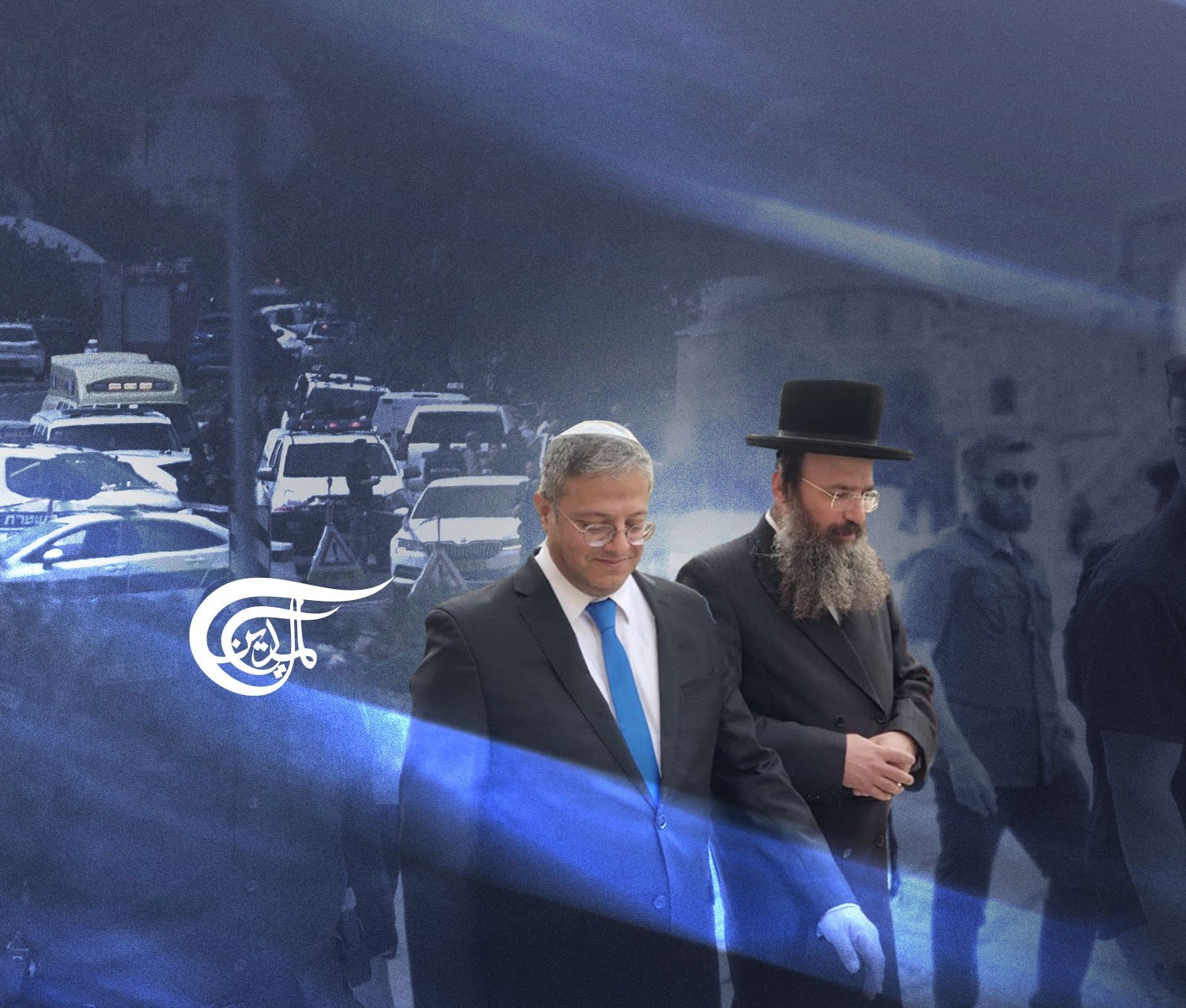Actuating an Israeli ‘Solution’ – via an al-Aqsa Emergency
Tensions between the ultra-Orthodox community and secular Israelis are nothing new, but the conflict is reaching unprecedented levels, with incidents turning violent.
-

The best way to consolidate the occupation into the ‘binary option’ is the consolidation of al-Aqsa as ‘theirs’
Prime Minister Netanyahu will restart the Judicial Reform Bills after his government successfully passed the state Budget. When asked whether the Bills (put on hold earlier this year) would resume, he said simply, “Of course”. This came just a week after the Minister overseeing the reforms said that if no agreement was reached with the Opposition, some of the judicial reform bills would likely be passed this Knesset term (i.e. by the summer). “If there aren’t agreements soon - and there probably won’t be - we’re going to a unilateral event,” said a senior coalition figure.
So, not only will the Judicial Reform agenda proceed (albeit with some small compromises on the part of the government possible), but the passage of the Budget, in itself, opened two new pyrogenic fronts in this incipient ‘civil war’: Tensions between the ultra-Orthodox community and secular Israelis are nothing new, but the conflict is reaching unprecedented levels, with incidents turning violent. Israeli commentators are forecasting the conflict ‘heading for war’.
Secular Israelis are more incensed over the billions of shekels earmarked for the Haredi community and their educational institutions in the Budget, and legislation enshrining into law gender segregation and exemption from military service for yeshiva students, than the budget’s other components.
However, the truly incendiary parts of the entire Budget framing were less covered outside "Israel": To mark "Jerusalem Day", National Security Minister Ben Gvir toured the ‘Temple Mount’, Haram al-Sheriff, and the site of al-Aqsa Mosque, declaring it a demonstration of Israeli ‘ownership’. “We are in charge here. I am happy to go up to the Temple Mount, the most important place for the Jewish people”.
And, to supplement Ben Gvir’s provocative language effectively claiming ownership of al-Aqsa, the entire Israeli cabinet held its weekly meeting in the Western Wall Tunnel -- sitting together immediately below al-Aqsa Mosque.
At that meeting held below the Mosque, the government approved the creation of a new body to ease the path toward legalizing about 70 illegal outpost settlements in the West Bank. Negev, Galilee and National Resilience Minister Yitzhak Wasserlauf, said he will “work to regulate the young settlements and establish the infrastructure” necessary to hook up these unauthorized communities to water and electricity”. The decision marked the first time that this government has created a department specifically designed to back settlement activity that Israeli law deems illegal.
Additionally, Finance Minister Smotrich this month ordered government ministries to prepare to absorb another 500,000 settlers in the West Bank - with Smotrich promising that “budgeting for these steps will not be a problem.”
The point here is that the Budget effectively endows Settlers with much more political power that they already have. As Zvi Barel writes:
“If today they can dictate the division of the budget, set security goals and use the military as a private defence force, once their power has doubled they will determine the content for the educational system, dictate the national narrative, empty out towns unable to cope with their lack of funding - as more worthwhile alternatives are offered instead - on the hills of the West Bank, and turn Israel inside the Green Line into their printer of money”.
Gideon Levy trenchantly lays out the longer-term implication of these events: Netanyahu, in “removing the entire Palestinian issue from the public agenda in Israel… [where] no one is interested in it anymore, other than paying it lip service - is a tremendous achievement” (at least in the eyes of the Right).
This act thus distills Israeli options down to two -- and no more: A unitary (one democratic state for the two peoples) between the River Jordan and the Sea; or, secondly a second Nakba (cleansing of Palestinians from the ‘Land of Israel’).
Here is the ‘rub’, as Gideon Levy puts it: The present situation which he calls ‘apartheid’ is but a stop-gap. “Its’ end will come”. And if the government goes on entrenching Occupation … “Not that there’s much more to entrench: the occupation is deep, consolidated, strong and irreversible. But if you can consolidate it further … this will enable an official declaration of the death of the two-state solution, decades after it died de facto”.
In killing this as a ‘Palestinian solution’, Netanyahu has left us with only two possible solutions, Levy avers:
“How will it play out: One is preferred by the extreme Right, and horrifically, perhaps by almost all Israelis – a second Nakba. If things come to a head, and Israel is faced with a choice of one democratic state for two peoples, or a mass expulsion of Palestinians in order to maintain the existence of a Jewish state - the choice will be clear for almost every Israeli Jew [i.e. they would choose Nakba]. The moment a two-state solution was taken off the table, they were left with no other choice” (emphasis added).
So how can Ben-Gvir, Yariv Levy, and Smotrich crystalise this plan? Through al-Aqsa. The holding of the Cabinet on "Jerusalem Day", immediately below al-Aqsa in the western wall tunnel, is an obvious telltale. Both Netayahu and Ben-Gvir declared that al-Aqsa “is ours”.
The best way to consolidate the occupation into the ‘binary option’ is the consolidation of al-Aqsa as ‘theirs’. The crisis (and possible war that ensues) is the Emergency that could put the ‘binary solution choice’ starkly on the table before every Israeli.

 Alastair Crooke
Alastair Crooke
 5 Min Read
5 Min Read











